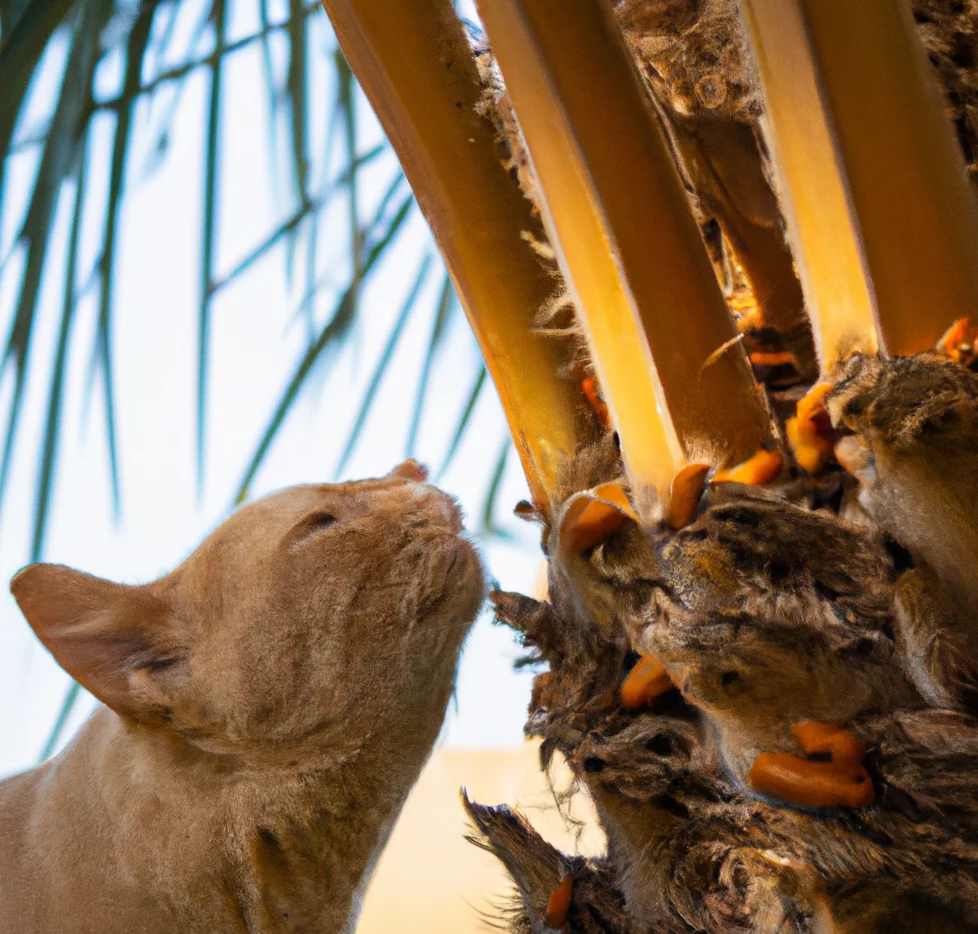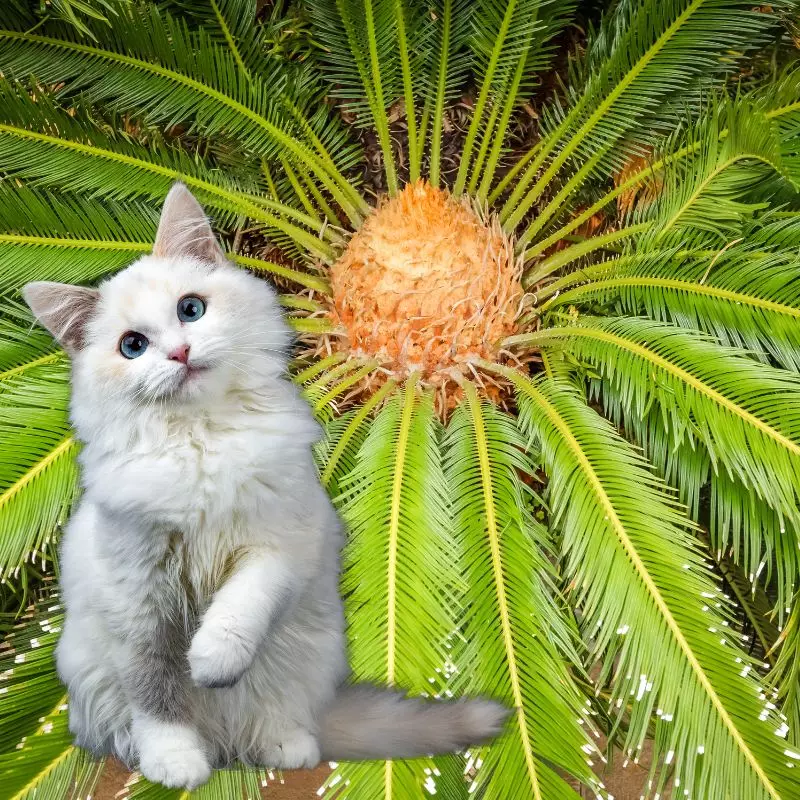No, Canary Date Palms are not toxic to cats. This conclusion is based on the American Society for the Prevention of Cruelty to Animals (ASPCA) listing the Canary Date Palm among its non-toxic plants for dogs, horses, and cats.
To ensure the accuracy and relevancy of this article, we collaborated with a team of experienced DVMs (doctors of veterinary medicine). Their expert contributions, combined with our extensive research from high-authority websites such as ASPCA and PetMD, enable us to provide up-to-date and precise information regarding the potential risks of various plants, focusing on Canary Date Palms in this instance, and their effects on cats.
Can Cats Eat Canary Date Palm?

Canary date palms are safe to be around pets and small children as they do not contain toxic properties. But, can your feline companions eat canary date palm? The short answer is yes, your cat can eat canary date palm. However, this plant should not be eaten regularly.
Cats have difficulty digesting parts of plants because their bodies lack the enzymes that process this. That’s why you should discourage your cats from getting near your plants as a safety measure.
What is Canary Date Palm?

Canary date palms are commonly used in beautiful landscaping, where they are collected and moved to other planting places. It is a massive single palm that may reach heights of 10 to 20 meters, with some examples exceeding 40 meters. It has an oval, yellow to orange drupe with a single large seed; the fruit pulp is edible but not as delicious as that of other dates.
Canary date palm is botanically known as Phoenix canariensis from the palm family of Arecaceae. As the name suggests, this tree is native to the Canary Islands in the Macaronesia region. It is also known for its other common name which is pineapple palm.
Canary Island date palms are commonly grown in wet-winter or Mediterranean climates. But, they may also be grown in wet-summer or humid subtropical climates such as eastern Australia and the southeastern United States. There have also been reports of farmed Canary Island Date Palms in high-latitude oceanic regions like Ireland, the United Kingdom, and the Channel Islands.
Keeping Cats Away From Canary Date Palm

You may discourage your cat from eating the plant by making it less appealing to them. Using natural repellents that may be sprayed on your plants is one option. Another alternative is to dilute vinegar into a solution and place it on your plants; this should not hurt the plants but will keep your cats away.
These solutions do not last indefinitely and must be reapplied every few days. Furthermore, some cats are unaffected by these odors and continue to disturb the plant. On the plus side, your cat may eventually link the plant with the fragrance and just ignore it.
While cats are not as readily disciplined as other animals, you can train them safely. Invoking negative associations can help. Clapping or screaming “no” loudly is an excellent strategy to keep your cat away from your plants.
If you have already tried different strategies to prevent your felines from getting near your plants, you may ask for advice from your veterinarian.
Plants to Avoid For Your Cats
If you are a cat owner and unsure if the plants growing in your yard are harmful to your cats, check out this list of toxic plants for cats. You can also check our list of non-toxic plants for cats.




